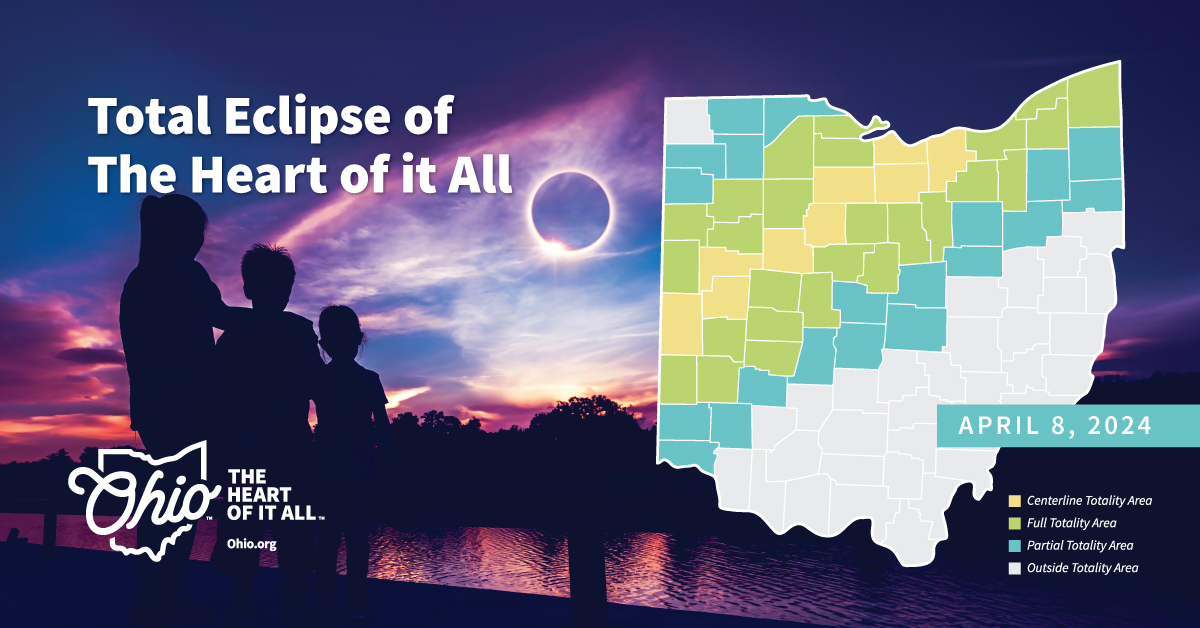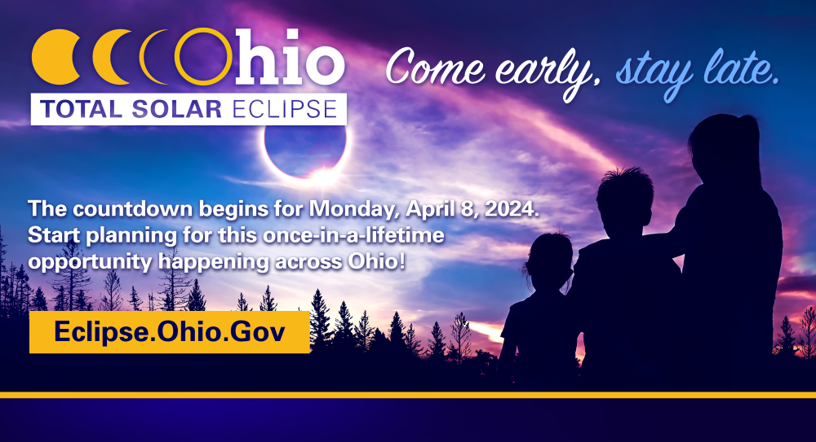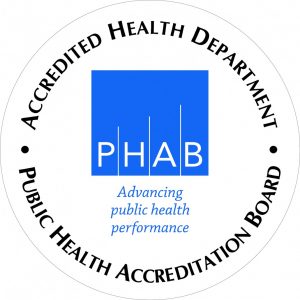What: A total solar eclipse will travel across North America, including Mexico, the United States, and Canada. This is a once in a lifetime event with the last total solar eclipse occurring in Ohio in 1806 and the next one will not be until 2099. Marion will be one of 35 Ohio counties to experience full totality of the solar eclipse, meaning the sun will be completely blocked by the moon resulting in total darkness.
When: Monday April 8th, 2024. The eclipse will begin in Marion County at 1:55 pm with totality being achieved at 3:11 pm. Marion will experience one of the longest totality times in Ohio with 3 minutes and 35 seconds of total darkness. The eclipse will exit Marion County at 4:27 pm with a total duration of 2 hours and 32 minutes.
Where: All of Marion will be within the path of totality. Please reference the image above to see how the path will track northeast across the state.
*Please be advised Marion Public Health will be closed Monday April 8th, 2024*



